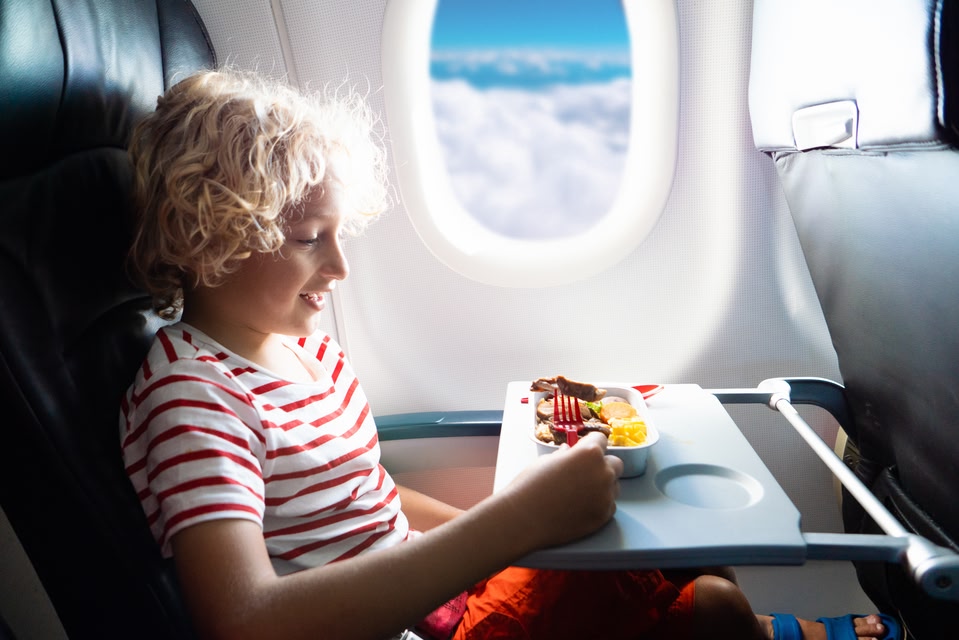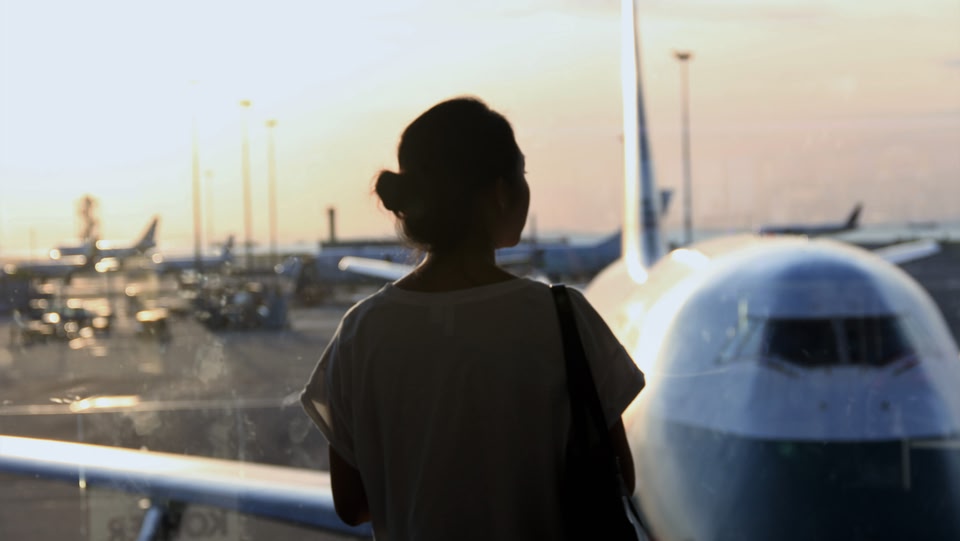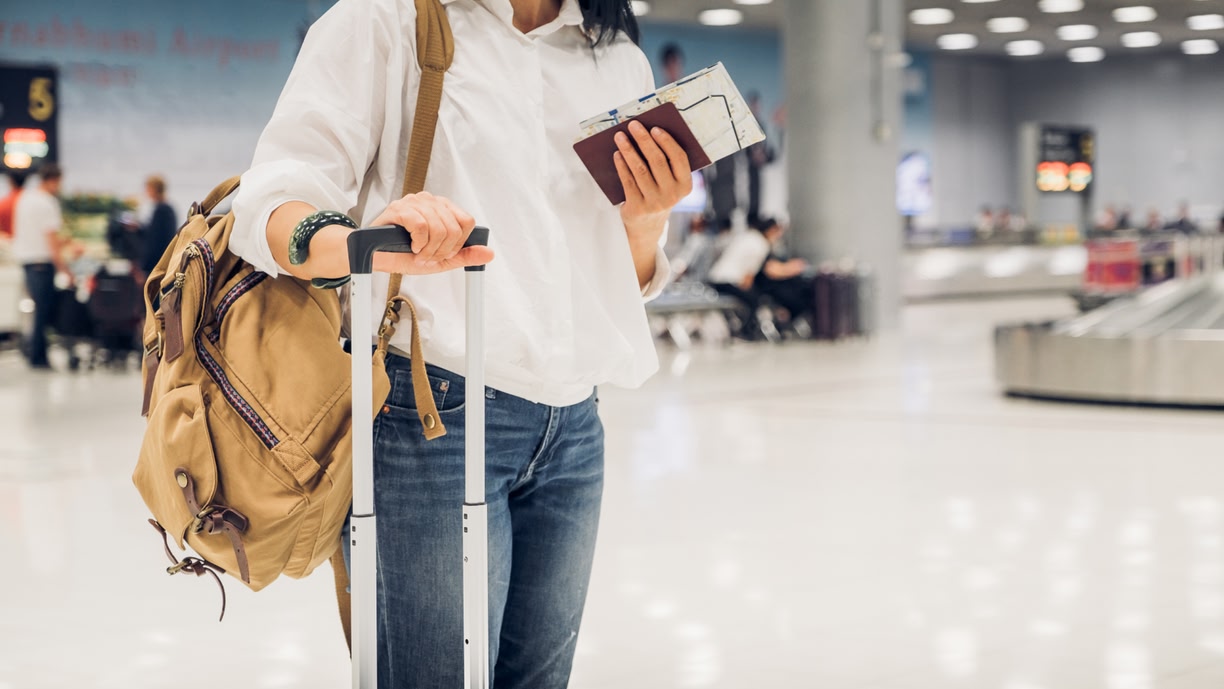Flying can often leave travellers wondering about what they can eat and what happens with their food once they land. Understanding the rules around food and drink on planes can help you plan and avoid any costly airport bin moments.
From onboard meal services to what you can pack in your carry-on, here’s your essential guide to food and drink on flights. We’ve included the rules for bringing items through airport security and into Australia (so you don’t end up on an episode of Border Security).
What to expect: Food and drink on planes
The type and quality of food and drink offered on flights depends largely on your airline, cabin class, and flight duration. Australia’s major carriers, Qantas, Virgin Australia, Jetstar and Rex, have different offerings ranging from complimentary meals to buy-on-board snacks.
On long-haul international flights, full meals are usually served, even in economy class. Domestic and short-haul international flights might offer lighter options, especially on low-cost carriers where you’ll often need to pay for snacks or drinks. Some airlines may even only have pre-purchased food options with limited snacks once you’re onboard.
Long-haul flights (5+ hours)
Expect at least one full meal and a light snack or second meal on most full-service airlines. Qantas, for example, typically provides dinner shortly after take-off, breakfast before landing, and snacks in between. If your flight is overnight, the cabin will likely be dimmed and snacks will be found in the galley area of the plane. Alcohol and non-alcoholic drinks are usually complimentary in all cabins.
If you’re travelling with children or if you’re someone with strict dietary references, it’s wise to bring a meal or snack you enjoy just in case options are limited.
Short-haul flights (under 5 hours)
Domestic flights with Qantas offer a complimentary snack or meal depending on the time of day. Virgin Australia provides snacks on select fares, while Jetstar and Rex often operate on a buy-on-board basis. For shorter flights (under 90 minutes), you may get a light snack (like a muesli bar or chips) or nothing at all unless you pre-order.
Business class flights
Business class travellers can expect significantly better food and drink options, even on shorter flights. Meals are typically multi-course, served on proper crockery, and paired with quality wine or spirits. On Qantas and Virgin Australia business class, menus are often designed by celebrity chefs, and frequent flyers can access inflight menus before boarding via apps. Some airlines even have dishes and drinks that are specifically created to taste better in the sky!
Travelling with dietary requirements
What should you do if you have a dietary requirement on a flight? Vegetarian, vegan, kosher, halal, low-sodium and gluten-free options are widely available on international flights. Most airlines require you to request these at least 48 hours before departure. Qantas and many international carriers offer many special meal options.
Special requirements
Note that some airlines combine dietary requirements into one meal that suits all. For example, a vegan, gluten-free meal might also tick the boxes for low sodium, kosher and vegetarian. This is why you might find yourself eating vegan curry for breakfast when the other passengers are dining on pancakes and eggs.
Babies and toddlers
Airlines like Qantas and Virgin Australia allow you to bring baby food, formula, milk and breast pumps in your carry-on. Some international flights can provide baby meals and purees upon request, but again, pre-ordering is recommended. Those travelling with a lap infant may not receive an extra meal for their infant. If you’re unsure, it’s best to bring enough foods you know your child will like for the entire duration of your flight. Many airlines can also offer off-menu snacks like yogurt and fruit on request.
Medical Conditions
Travellers with diabetes, allergies, or other medical needs can often request appropriate meals or bring their own. Medical-related food and equipment usually aren't counted toward carry-on limits, but it’s wise to carry a doctor’s note just in case.

Foods you can and can't take on a plane
Travellers flying domestically have different rules to those coming in from overseas. Here’s what you can and can’t bring on a plane in Australia.
Can I bring food through airport security?
Yes, you can bring food through airport security in Australia, both domestically and internationally, provided it’s solid food. Items like sandwiches, fruit, muesli bars and packaged snacks are generally fine. Liquids (including soups, yoghurts, and sauces) must follow the 100ml liquid rule for international flights.
Once you land, you’ll need to follow local customs rules—many countries ban items like fruit, vegetables, or honey (e.g. Fiji). Even if allowed through Australian security, it’s best to eat fresh items before reaching your destination’s customs.
Can I bring food on a domestic flight?
If you’re flying domestically within Australia, you can bring snacks, takeaway meals, and even leftovers. However, interstate quarantine rules (such as in WA, SA and TAS) may require you to dispose of fruit and vegetables upon landing.
Can I bring food onto my flight to Australia?
You can usually bring your own food onboard the flight to Australia (though many flights ban liquids over 100ml, even if they were purchased air-side of the airport).
What can I bring into Australia?
Australia has some of the strictest biosecurity laws in the world. On arrival, you’ll be required to declare any food, drink, plant or animal products on your Incoming Passenger Card. If you’re a frequent flyer, you might have ‘Don’t be sorry, just declare it!’ drilled into your head.
Allowed (with declaration):
Packaged confectionery
Canned foods (if sealed and commercially labelled)
Baby formula, breast milk and processed baby food
Tea and coffee (commercially packaged)
Maple syrup
Cheese
Nuts
Not Allowed (or need prior permission):
Fresh fruit and vegetables
Homemade meals
Dairy and meat products (even if vacuum sealed)
Honey and bee products
Eggs
Pet food
Rice
Failure to declare can result in heavy fines, so when in doubt, declare or dispose.
Duty-free and onboard purchases
On many international flights, you can purchase alcohol, perfume, snacks, and other items duty-free. These will often be delivered to your seat, sealed and bagged, to comply with liquid restrictions. Keep them sealed if you have a connecting flight to avoid confiscation at the next security screening.


